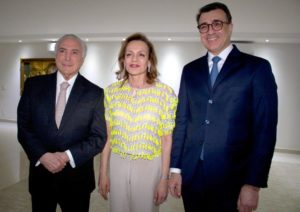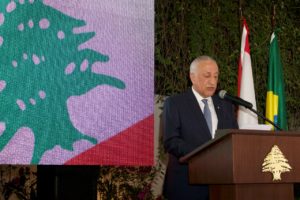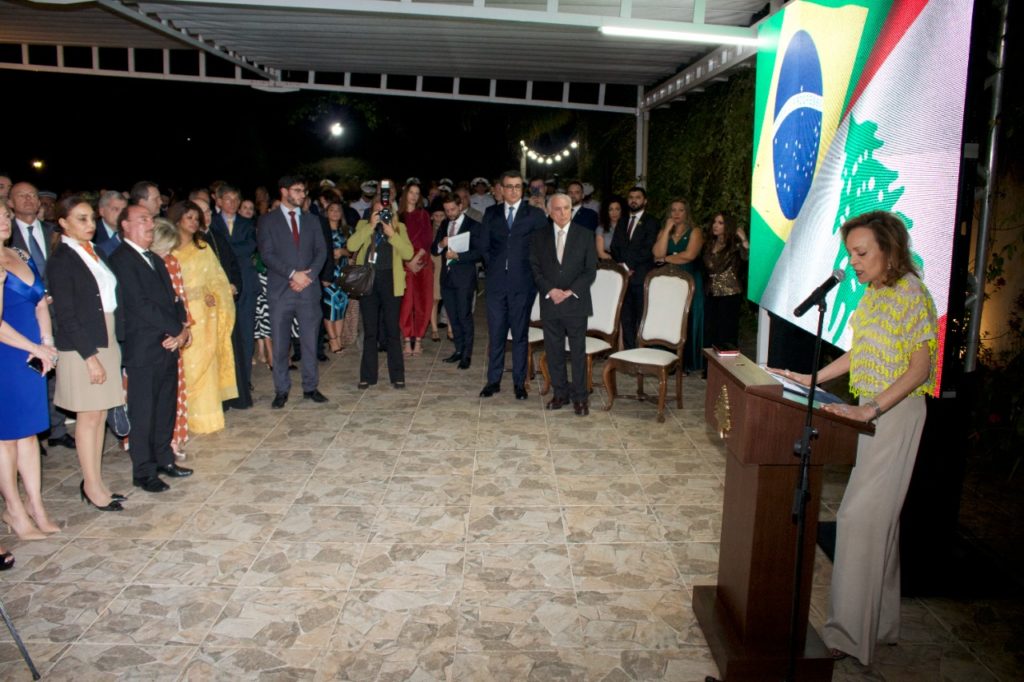São Paulo – Exactly two years ago, an explosion devastated the Port of Beirut, the capital city of Lebanon. Added to the severe economic crisis and the COVID-19 pandemic, Lebanon has been working to rebuild and rise from the ashes once again. To remember the two years since the horrific accident, the Lebanese Embassy to Brasília and the Brazilian Ministry of Foreign Affairs held an event this Wednesday (3) at the embassy’s headquarters, in which the Humanitarian Aid Fund for the People of Lebanon was launched, to help the Lebanese people to get back on their feet. Individuals, corporations, and entities will be able to make donations to collaborate with the recovery of the Arab country.

The United for Lebanon group was officially established as a non-governmental entity at the event. Different players of the Arab-Brazilian community informally created the group shortly after the explosion in 2020. One of the group’s projects is the Humanitarian Aid Fund, which will supervise, collect, utilize funds, and manage projects.
“The fund project that brings us together tonight is, in fact, a way of translating this enormous influence the community of Lebanese descent has in this country into a tangible, sustainable, and institutional solidarity with the Lebanese people; a solidarity to give back to the country of the ancestors of many here; who will build on this human bridge that connects Brazil to Lebanon; and will help in a systematic way that goes beyond ad hoc fundraising or collecting medicines when necessary,” said Ambassador Carla Jazzar, chargé d’affaires of the Lebanese Embassy in Brazil.

About 200 people attended the event, including authorities, politicians, diplomats, and members of the Lebanese-Brazilian community. Brazilian Foreign minister Carlos França; former president Michel Temer, honorary president of the fund; and the president of certifier Fambras Halal, Mohamed Zoghbi, president of the United for Lebanon group; also spoke.
Representing the Arab Brazilian Chamber of Commerce (ABCC) were president Osmar Chohfi and vice president of International Relations, Mohamad Mourad. “The ABCC has participated in the United for Lebanon group since its inception,” recalled ambassador Chohfi.
Economic crisis
The embassy recalled Lebanon is facing one of the worst crises in the last 150 years, according to a World Bank report. The Lebanese pound has reached a historic depreciation, losing over 100% of its value against the US dollar, inflation has reached 300%, personal deposits were retained in banks, and the lack of foreign currency reserves has limited imports of essential items such as gas and diesel. As a result, some blackouts last 23 hours a day, and there is a lack of food, medicine, fuel, and other essential supplies.
This situation was aggravated by the presence of over one million Syrian refugees, the COVID-19 pandemic, the explosion in the port of Beirut in 2020, and, more recently, the war between Russia and Ukraine since 80% of Lebanese imports of wheat originated from these two countries.
Translated by Elúsio Brasileiro




